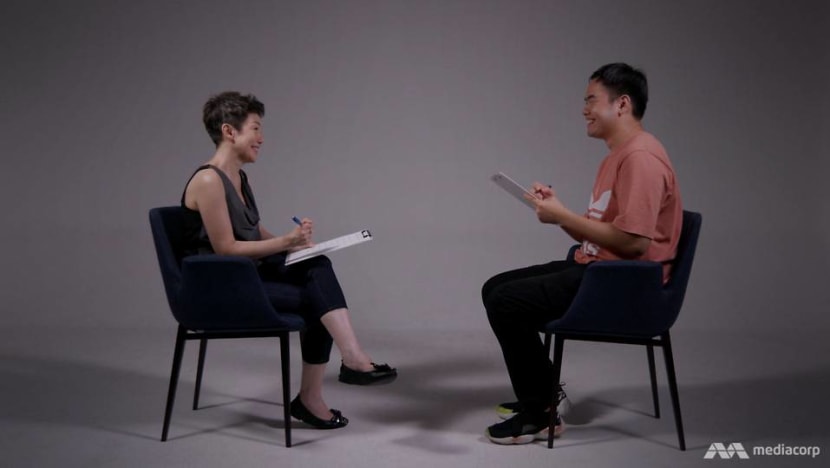How Singapore sees its millennials (and it’s not a pretty picture)
A nationwide survey uncovers cracks between the different ages, raising questions on whether the young are being ignored, as the documentary Regardless of Generation tackles an ‘overlooked, yet particularly urgent divide’.
SINGAPORE: They get their fair share of criticisms from the older generation, and now, a nationwide survey has found out what Singaporeans really think of millennials.
Impatient, overconfident and materialistic — these are among the top perceptions of those aged 19 to 36 years old.
This demographic ranked the lowest — versus Generation X and the pre-independence generation — for being disciplined, loyal and taking ownership of work. Being cautious or hardworking are not seen to be millennial traits either.
The stereotypes Jade Rasif hears most often are: Millennials are “entitled”, “lazy” and lack respect for traditional institutions of power. There is “some truth” there, she admitted.

But the 25-year-old — the winner of a model search, with 324,000 Instagram followers, and Singapore’s highest-paid DJ — has another view of her peers.
“The amount of tech savviness that you find in my generation is insane. And they have so much power to be agents of change,” she said.
“It’s about steering them towards the right path. The way the older generation can do that is to guide them, not criticise them.”
Indeed, of the 20 characteristics listed in the survey of 1,200 people, millennials were described most as being tech-savvy, and innovative at number three.
But Dr Janil Puthucheary, a senior minister of state, is worried it is a generation that feels neglected, with no voice in an ageing Singapore. He has also noticed “increasing divisions between the young and old”.
And while “no one’s really explored” Singapore’s generation gap, it is a fault line that cuts across race, religion and class, he highlighted. The documentary Regardless of Generation finds out how wide the chasm is.
WATCH: Millennials vs seniors: On Hong Kong protests & other stuff (5:00)
IN THE MIND OF MILLENNIALS
In the door-to-door survey Dr Puthucheary commissioned, which he worked on with CNA, only 15 to 17 per cent of people thought millennials were disciplined or loyal, whereas 84 to 91 per cent thought so of the 55-72 demographic.
Some 27 to 32 per cent saw millennials as taking ownership of work and being hardworking, traits the middle and older generations scored the highest on respectively.
But at local content creator SGAG, where the oldest employee is 38, its millennials disagreed, citing the overnight and weekend shoots or seven-day working weeks, for example, they sometimes have.
“Everyone has a generalised view of the millennials, like how we seem to have a generalised view of the elderly,” said SGAG senior content strategist Nadia Ongkowidjaja, 26.
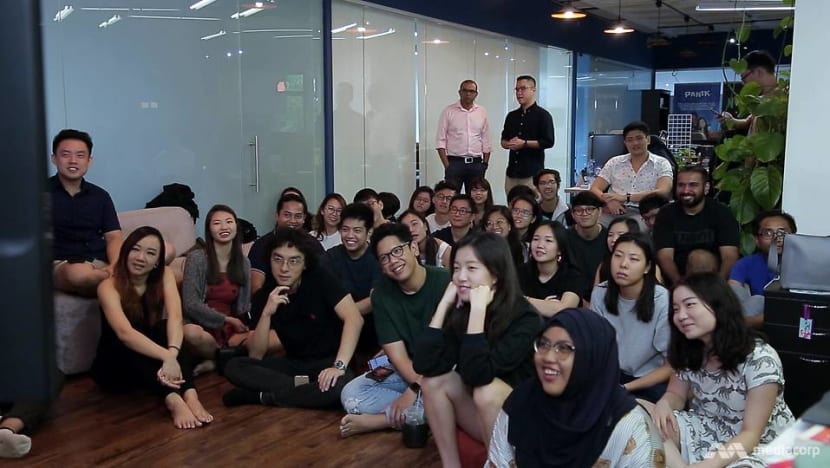
The survey showed, however, that millennials think of themselves in a similar way. For example, only a fifth of them see their generation as disciplined, while 83 to 84 per cent agree that they are impatient and materialistic.
“I love to buy things. I’m part of the 84 (per cent),” attested SGAG senior content strategist Ee Chiou Huey, 29. “Because if not, we earn money for what?”
As for their impatience, she put it down to the “instant gratification” they can get today, for example from food delivery apps.
“I don’t even have to stand at the side of the road to flag for (a taxi), like how we used to,” she said.
Ms Ongkowidjaja added: “We always try to fit a lot of things into our schedules. We don’t want to just do one thing … so we might seem a bit impatient in that sense.”

There are bound to be “some differences in behaviour” and expectations of it, even between millennials and Generation X, owing to the “huge shift to digital disruption”, said SGAG co-founder Karl Mak.
“I see millennials as a generation in transition, from pre-internet living to basically being digital-first natives. I think that transition isn’t necessarily one that the world has seen before,” the 31-year-old said.
“For example, dating is on the mobile phone: You swipe left, you swipe right. You don’t need to go out and buy somebody a drink in a club to have a conversation.
“The digital way that we approach every single area of life … is naturally going to cause a bit of conversation and a rift.”

Singapore’s most educated generation is, however, also the least socially gracious, according to surveys done by data analytics platform Milieu Insight.
“For example, helping the needy cross the road, giving up seats to the needy on the train and greeting your neighbours. Millennials scored lower than the other generations,” said the company’s chief executive officer and founder Gerald Ang, 35.
“Maybe millennials get lost in the digital world (in such a way) that sometimes they lose touch with the real world.”
The problem is “situational awareness”, rather than negative intent, though he agrees that it “needs to be fixed”.
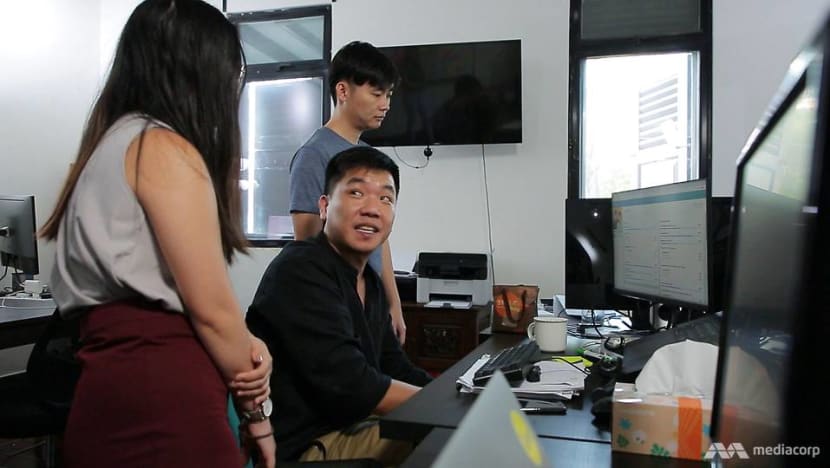
DIFFERENT VIEWS ON SINGAPORE?
What worries private educator Tong Yee, on the other hand, is whether Singapore will become less “clear” and “intentional” as a society if there is a generational gulf in opinions about national issues.
“If we have an entire generation of Singaporeans who truly believe that stability is the way to go, and another whole generation that believes in change-makers … imagine the impact on just the voting,” he said.
“What kind of leader becomes important for them? I think in the political sphere alone, we’re looking at some level of fragmentation … It’s deeply polarising.”
It is a “dilemma” looming for 47-year-old Dr Puthucheary, who is part of the fourth-generation leadership.
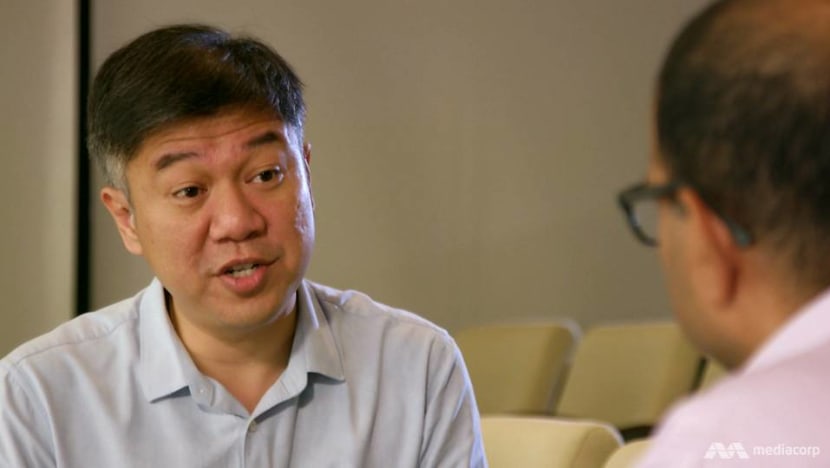
He pointed out that the majority of the population, and the largest voting bloc, are over 40 years old, who “naturally shape the status quo”. And last year, a million residents were aged 55 and above.
“But can we really afford to ignore a generation that will be the future of our country?” he questioned.
To find out what the generations disagree on, and their commonalities, the CNA survey explored views on issues like the environment, foreign talent, trade-offs, sexuality and politics. The result? There was much in common.
Most people (87 per cent) would protect the environment even at some cost to economic growth. A majority (57.5 per cent) across generations also want a minimum wage for low-income workers, even if it means costlier goods and services.

A minority (38 per cent), from young to old, are willing to pay more taxes (such as income tax and GST) to address inequality.
Even work-life balance, which millennials are known to prioritise, is important across the age spectrum: The top job criteria for Generation Xers and the older generation.
Differences showed up most on two issues. The first is how people feel about lesbian, gay, bisexual and transgender (LGBT) issues. Millennials are the most accepting, as opposed to the pre-independence generation.
Dr Puthucheary was not surprised at the finding, “considering the global push for those rights”.
The other issue was foreign talent. Three-quarters of the pre-independence generation felt that there are too many foreign talents here, about two-thirds of Generation X felt the same way, while 56 per cent of millennials agreed.
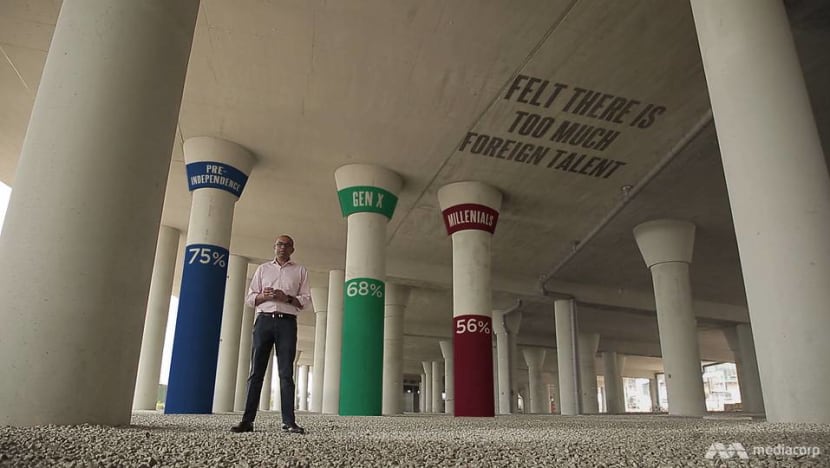
This, at a time when “much of the world is moving in the other direction, becoming less accepting and inclusive”, noted Dr Puthucheary.
To Mr Tong, these two issues suggest how the younger generation is “more liberal” than the rest. “They really respect the experience of the individual,” he said.
It may not mean, however, that millennials are unconcerned about jobs. When Dr Puthucheary asked 12 Singaporeans if there were enough good jobs here, he saw a “generational split”, with all four millennials disagreeing.
“More of us are getting short-term contract jobs," said Ms Adora Tan, 23. “Most of my friends are still unemployed. We’re very worried."
Besides work-life balance, a good job also means having a good career progression, added Mr Thung Yi Tian, 24.
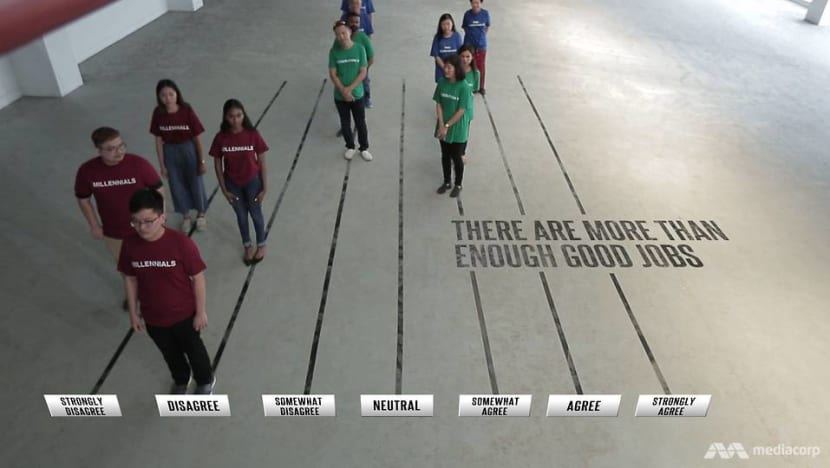
Their views made Ms Diana Koh, 51, wonder if there was a mismatch in expectations. “Maybe they’re looking for more comfortable, cushy jobs,” she suggested.
CONSENSUS AND CONVERSATION
While millennials may hold some different views from the older generations, their own views also diverge, including on foreign talent and LGBT issues.
Among the generations, they are the most racially diverse and the least likely to be married or have a religion. There are students, working adults and those with both young children and elderly parents.
This is why Dr Puthucheary found one set of survey results “quite striking”: 79 per cent of the pre-independence generation were willing to put aside personal preference for the greater good, compared with 68 per cent of millennials.
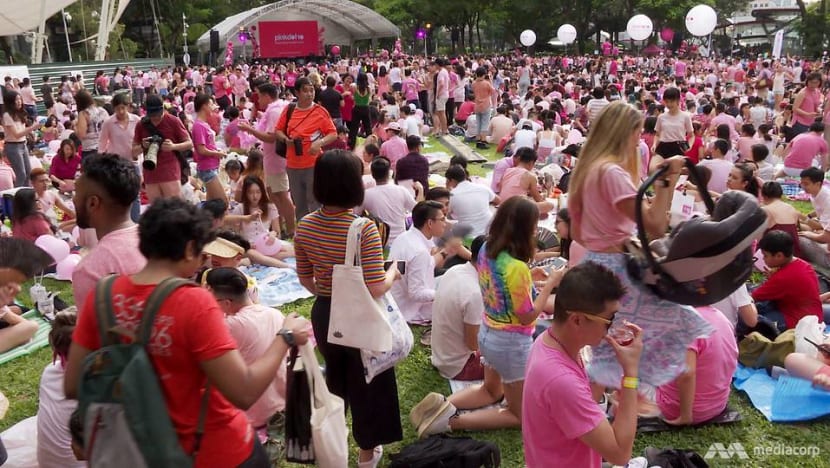
The same percentage of millennials — fewer than the rest — were willing to “accept decisions that make Singapore a better place” if these do not fit their personal interests.
“If they have diverse views, yet are unwilling to (make sacrifices) for a greater good, how do we deal with this? And what does that mean if we want to strive for consensus?” he questioned.
Recently, when the controversy over the rap video and an e-payment advertisement “gripped our nation”, he was surprised to find a lack of consensus “about what’s deemed offensive”. Much of the public commentary, he said, was split along generational lines.
Stand-up comedian Rishi Budhrani is one who felt that the reaction to the rap video was disproportionate.
“For a part of the population, and I’d imagine a bit more of the younger generation … this was a parody. This was a satirical piece. This was comedy, in a way also speaking truth to power,” said the 35-year-old.
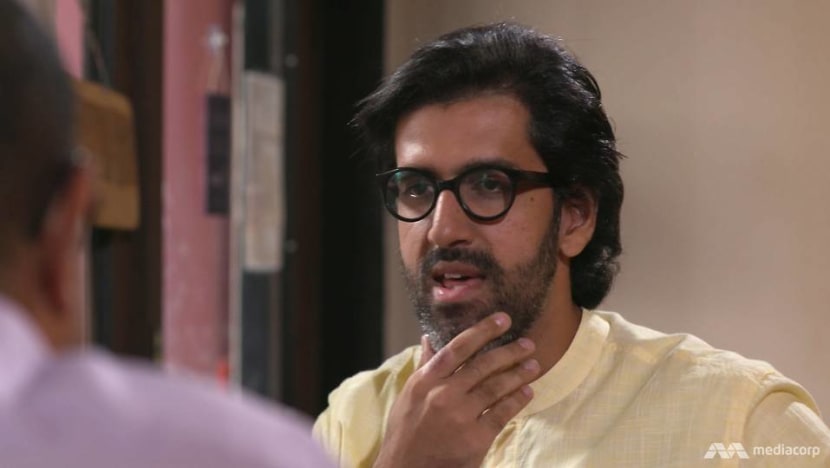
To those who had not lived during Singapore’s racial riots, “it was just a video”. The “problematic question”, he believes, is about what the boundaries should be. “Our general boundaries are almost too strict,” he added.
“There’s a sense of gratitude for the folks who effectively helped to build the nation … (but) when are our voices going to be heard?”
The first step towards building consensus, he reckoned, is to acknowledge the “generational issue” in Singapore.
It is a conversation that has barely started, agreed Mr Tong, because while the younger generation has a “stronger appetite” for talking about contentious issues, the older generation does not.
To persuade millennials that they have a voice, those in a position of authority have a “responsibility to create a space for dialogue”, said editor Kit Chua from online magazine Junk Asia.
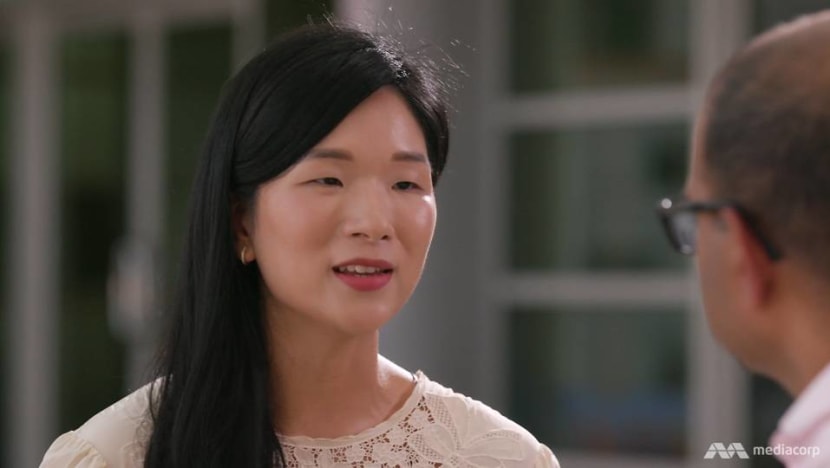
“Being typical kiasu Singaporeans, millennials feel that if something can be better, why not?” said the 31-year-old, who cited room for improvement in areas such as freedom for expression and “liberalism in general”.
Nonetheless, stability is not taken for granted, she stressed while also acknowledging that millennials must accept different viewpoints as part of a “two-way conversation”.
WATCH: What millennials and baby boomers really think about each other (4:05)
BY FORCE OF CIRCUMSTANCE
For three young overseas Singaporeans Dr Puthucheary reached out to, the question he had was whether they still felt connected to their homeland.
There are 25 per cent more Singaporean millennials living overseas, compared with 10 years ago, and he wondered “how much of it is due to the double whammy of life stresses and how society treats them”.

Mr Kevin Toh, 27, the founder of lifestyle membership app Sweego Vietnam, thinks Singapore is still the best place in the region to settle down because of its infrastructure and education, for example.
Mr Jeriel Tan, 29, would return for something significant, like working with a “cutting-edge, pioneering company in the tech world that’s able to compete on the global stage”, and with “people who have great initiative (and) great technical capabilities”.
“In China, I get that through the energy that I find … in the young people here in the city and the country,” said the communications specialist with an AI enterprise. “This is something that I find quite lacking in Singapore.”
A “shift in mindset” is what nurse Gina Fernandez in New Zealand hopes for, as “it’s quite a rat race in Singapore” and she sees many ex-colleagues here being “burnt out”. But she knows “that can’t happen overnight”.
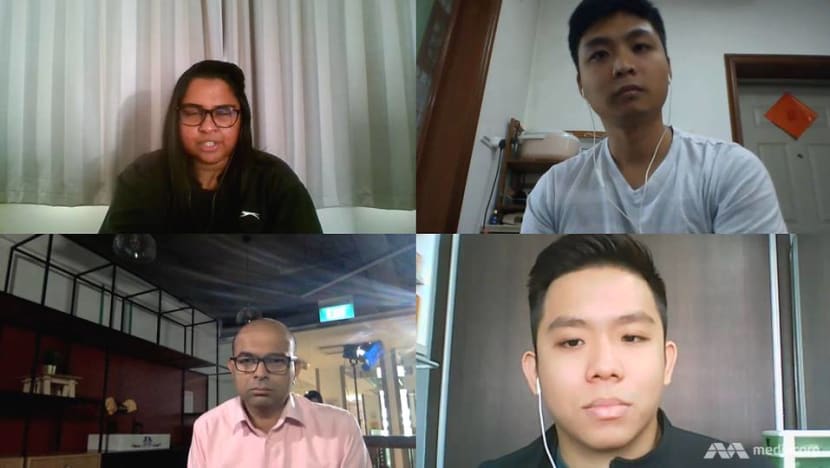
“Different types of jobs (and) successes need to be celebrated. I feel that we don’t have to all fit into one box,” said the 34-year-old.
While there are pessimistic observations about millennials, for example that they are coddled, Dr Puthucheary suggested that their “sense of entitlement” may be “a result of their circumstances”.
“An ageing population will mean a greater strain on resources, and a future that the next generation will have to bankroll,” he explained.
“The economic outlook is uncertain. They’ll have to cope with a rising cost of living and, potentially, a greater level of debt.”

Amid the changing population dynamics, and as the “different generations’ lives are increasingly converging”, he described the current gap as an “overlooked, yet particularly urgent divide”.
“As retirement ages rise, workplaces are now more intergenerational than ever. In fact, compared to a decade ago, there are 10 per cent more workers (aged) 55 years old and above,” he said.
“The young and old will need to work together, not apart.”
Although “age isn’t an explosive fault line, so perhaps we don’t talk so much about it”, the gap is growing, he added. “We need to start paying attention and do something about it.”
Watch the documentary here. And read about Singapore's class divide here.
